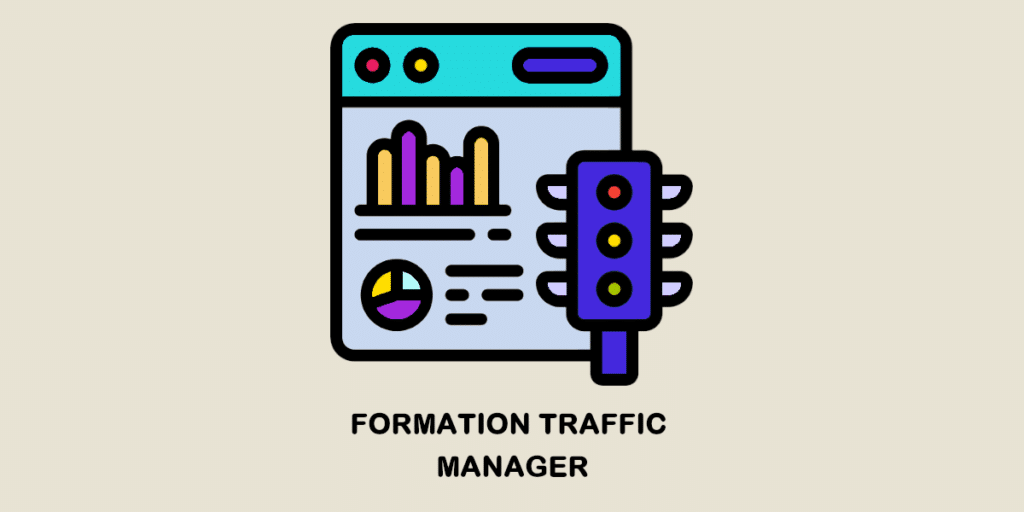Whether to sell their products and services or simply to promote themselves, the vast majority of companies today have a website.
But for it to be effective, it needs to attract quality traffic. And with the proliferation of websites, acquiring quality traffic can often be a real headache. Unless you have the necessary skills. That’s precisely what traffic manager training is all about.
💡Related articles:
What is a traffic manager?
Also known as SEO or acquisition manager, the traffic manager is responsible for improving a company’s online visibility. In other words, developing its traffic on the web or social networks. To do this, they implement a number of digital marketing strategies, such as SEA, SEO, SMO, advertising networks, affiliate network campaigns, etc.
As well as raising your profile on the web, acquiring qualified traffic also helps your business to convert more customers. So it’s a real performance driver for companies. That’s precisely why companies are increasingly looking for SEO specialists. But to help them generate more traffic, it is essential to follow a traffic manager training course.
Good to know: traffic managers can work for a company, a start-up, a web school, a communications agency or a web agency.
What are the duties of an acquisition manager?
To help the company optimise its traffic acquisition levers, the traffic manager must :
- Understand their audience: using the data at their disposal (number of unique visits, pages viewed, number of clicks, path and duration of visits, etc.), traffic managers can identify their target customers and implement the most effective actions.
- Implement several web marketing strategies, such as paid search, natural search, e-mailing, affiliation and advertising campaigns. For each of these he can use different tools, such as banners, skyscrapers, pop-ups, expand banners, etc.
- Analysing the impact of the strategies implemented: in real time. To do this, they need to analyse the traffic from both a qualitative and quantitative point of view. Depending on the results obtained, they must adapt their acquisition strategy to constantly improve the website’s traffic.
- Monitoring the company’s e-reputation: in many cases, they are in direct contact with the community managers. But for smaller companies, the traffic manager is responsible for communicating directly with the target audience.
- Monitoring: both competitive and technological. This enables them to identify new trends and changes in the behaviour of Internet users.

Why train as a traffic manager?
Given the omnipresence of digital technology for business performance, the role of traffic manager is becoming increasingly important. But to become an SEO manager, you need to master a number of key skills. Namely :
- SEO (or Search Engine Optimization): this is natural referencing based on the quality of content, the website and its popularity. The aim is to improve a website’s ranking on search engines.
- SEA (or Search Engine Advertising): this is paid search engine optimisation. Thanks to well-executed advertising campaigns, companies can rapidly acquire qualified traffic.
- SMO (Social Media Optimisation): this is optimisation on social networks to increase the impact of your site on your audience.
Web language: in particular HTML and CSS. - Analytics: data analysis is a determining factor in the choice of each strategy implemented, but also in the adjustments made. They must therefore be familiar with various analysis tools (in particular Google Analytics).
But given the technical nature of these skills, traffic manager training is essential.
Good to know: in addition to these technical skills, the acquisition manager must also be rigorous, curious and have good interpersonal skills.
What training do you need to become a traffic manager?
As the profession of traffic manager is relatively recent, there are very few truly specialised training courses. That said, you can choose between several alternatives to become an SEO.
The first is training leading to a degree via higher education. Here, you need at least a 2-year higher education qualification in digital communications, marketing or IT. For example, a BTS or a DUT. A master’s degree will make you more versatile and increase your chances of finding a job quickly.
The second option is to take a course outside the classroom. This could be to retrain for a new career or to improve your skills. You could take a course in traffic management, webmarketing or data.
Join DataScientest to become a traffic manager
At Datascientest, we help you master data at your fingertips. And because traffic managers need to perfect their customer knowledge and analytical skills in order to make the right decisions, our training courses are perfectly suited to these professionals.











